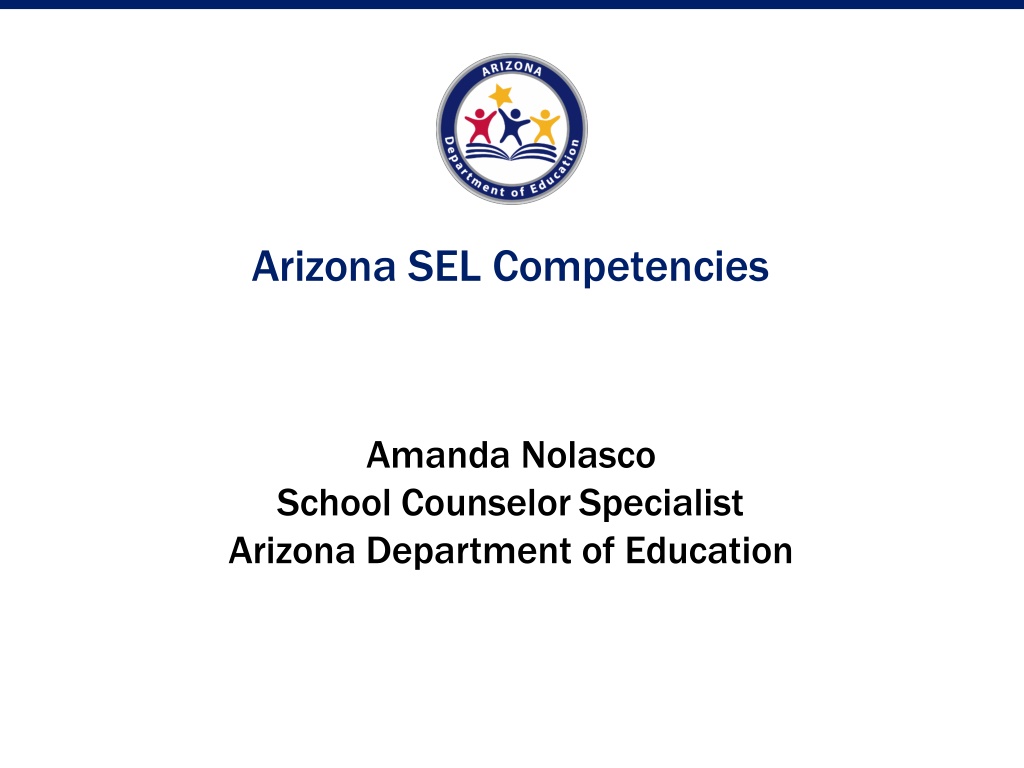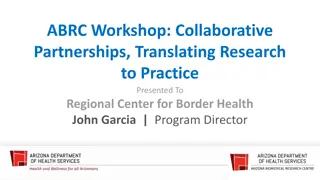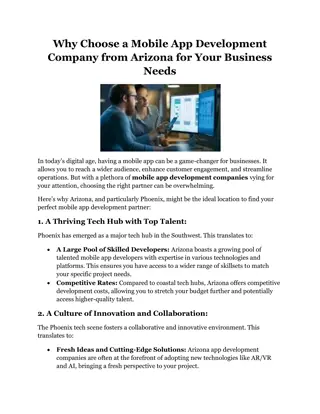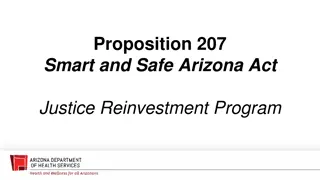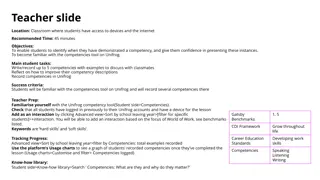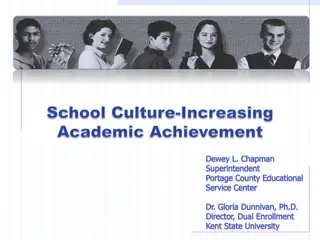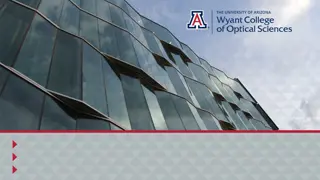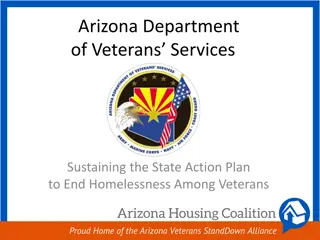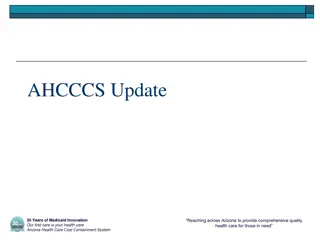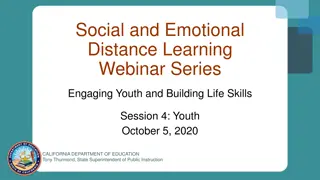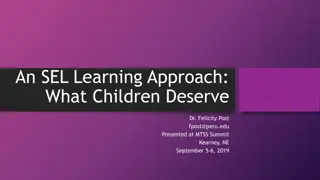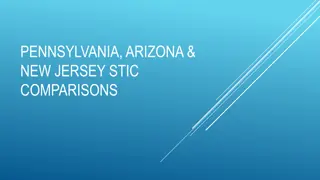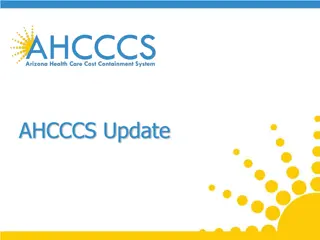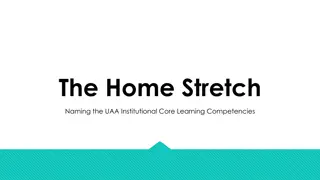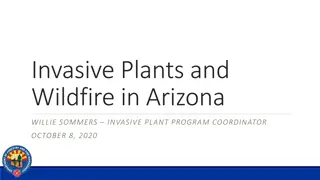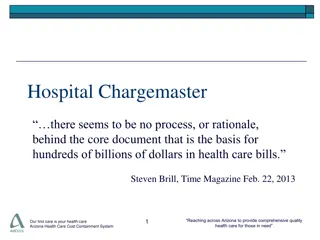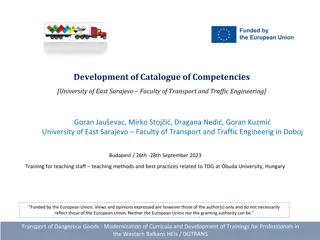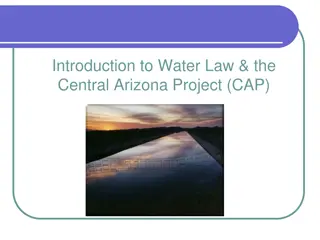Understanding Arizona Social and Emotional Learning (SEL) Competencies
Social and Emotional Learning (SEL) is a crucial aspect of education and human development that equips individuals with the skills to develop healthy identities, manage emotions, build relationships, and make responsible decisions. The Arizona SEL Competencies aim to promote educational equity and excellence through collaborative partnerships and supportive environments. By implementing SEL effectively, schools can empower students and adults to create thriving communities.
Download Presentation

Please find below an Image/Link to download the presentation.
The content on the website is provided AS IS for your information and personal use only. It may not be sold, licensed, or shared on other websites without obtaining consent from the author. Download presentation by click this link. If you encounter any issues during the download, it is possible that the publisher has removed the file from their server.
E N D
Presentation Transcript
Arizona SEL Competencies Amanda Nolasco School CounselorSpecialist Arizona Department of Education
Goals for Today Learn about the Arizona SEL Competencies Effective SEL Implementation Funding Guide Resources Thank you to Superintendent Hoffman for making SEL a priority under her leadership and for allowing the space for this work to be completed.
What is Social and Emotional Learning (SEL)? SEL is an integral part of education and human development. SEL is the process through which all young people and adults acquire and apply the knowledge, skills, and attitudes to develop healthy identities, manage emotions and achieve personal and collective goals, feel and show empathy for others, establish and maintain supportive relationships, and make responsible and caring decisions. www.casel.org
What is Social and Emotional Learning (SEL)? SEL advances educational equity and excellence through authentic school-family-community partnerships to establish learning environments and experiences that feature trusting and collaborative relationships, rigorous and meaningful curriculum and instruction, and ongoing evaluation. SEL can help address various forms of inequity and empower young people and adults to co-create thriving schools and contribute to safe, healthy, and just communities. www.casel.org
Effective SEL Implementation Focus on system needs Long termgoals Continuous improvement Strong foundation Support and train adults Adopt curriculum and instructional routines to positively integrate SEL through all areas Part of school culture
CASEL Guide: Evidence Based Programs The CASEL Guide provides a systematic framework for evaluating the quality of social and emotional programs and applies this framework to identify and rate well- designed, evidence-based SEL programs with potential for broad dissemination to schools across the United States. The Guide also shares best-practice guidelines for district and school teams on how to select and implement SEL programs. Finally, it offers recommendations for future priorities to advance SEL research and practice. Review their recommendations and process at www.casel.org/guide.
SEL Funding Guide Direct link to SEL Funding Guide
SEL Funding Guide(cont.) Federal Program Social Emotional Learning(SEL) AllowableActivities Examples/WhatSEL LooksLike Title I-C Educationof Migratory Children Parent advisorycouncil meetings Community partnerships with local healthcareclinics Collaboration with CAMP (College AssistanceMigrant Program) Professionaldevelopment ESSASec.1304 Outreach activities for migratory children and their families to inform such children and families of other education, health, nutrition, and social services to help connect them to such services; Title I-D Subpart 2 Programs For Children and Youth WhoAre Neglected, Delinquent or At- Risk Schoolcounselors Socialworkers Restorative justicetraining SEL competency trainingfor students orstaff Stipends for teachersto facilitate student peer supportgroups SEL-informedclassroom managementstrategies Dropoutprevention Physicaleducation Mindfulnesseducation Yoga & wellnessprograms Re-entry programs for justice involvedyouth Anti-bullyingprograms Drugprevention Healthyrelationships programs SELcurriculum Therapies (animal,art, trauma, family) Violenceprevention Supportgroups Homevisits Family engagementoutreach ESSASec.1424 Coordination of health and social services for such individuals if there is a likelihood that the provision of such services, including day care, drug and alcohol counseling, and mental health services, will improve the likelihood such individuals will complete theireducation; Special programs to meet the unique academic needs of participating children and youth, including career and technical education, special education, career counseling, curriculum based youth entrepreneurship education, and assistance in securing student loans or grants for postsecondaryeducation; Programs providing mentoring and peer mediation;
SEL Funding Guide(cont.) Federal Program Social Emotional Learning(SEL) AllowableActivities Examples/WhatSEL LooksLike Title II-A Preparing, Training, & Recruiting High QualityTeachers, Principals & SchoolLeaders SEL competency professional development SEL/academicintegration training In-serviceinuniversal, Tier 1 explicit SEL Mental healthawareness training Strengths-basedbehavior managementtraining Restorative justice trainingor programs Mindfulnesseducation Peercoaching Stipends foroff-contract time teacher work groupsto prepare SEL curriculumand SEL lessons, reviewsurvey data, create support tier groups,etc. ESSA Sec.2103 Developing programs and activities that increase the ability of teachers to effectively teach childrenwith disabilities, including children with significant cognitive disabilities, and English learners, which may include the use of multi-tier systems of support and positive behavioral intervention and supports, so that such children with disabilities and English learners can meet the challenging State academicstandards; In-service training for school personnel inthe techniques and supports needed to help educators understand when and how to refer students affectedby trauma, and children with, or at risk of, mental illness; In-service training for school personnel in the use of referral mechanisms that effectivelylink such children to appropriate treatment and intervention services in the school and in the community,where appropriate; In-service training for school personnel in forming partnerships between school-based mental health programs and public or private mental health organizations; and In-service training for school personnel inaddressing issues related to school conditions for studentlearning, such as safety, peer interaction, drug and alcohol abuse, and chronicabsenteeism;
SEL Funding Guide(cont.) Federal Program Social Emotional Learning(SEL) AllowableActivities Examples/WhatSEL LooksLike TitleIV-A Student Support& Academic Enrichment Physicaleducation Healtheducator Yoga & wellness programs Yogamats & balls Mindfulnesscurriculum, consultant, supplies Extracurricular yogaclasses for parents &students Family aerobicsnight Sensoryroom Gardeningsupplies Socialworkers School guidance counselors Restorative justice trainingor programs SEL-informedclassroom enhancementstrategies SEL competency trainingfor students orstaff Dropoutprevention Positivebehavior management Re-entry programs forjustice involved youth Anti-bullyingprograms Drugprevention Healthyrelationships programs SELcurriculum Charactereducation SELdirector/specialist Mental healthawareness studentassemblies Registration & travel forSEL conferences Extra duty pay stipendsfor teachers to facilitatestudent supportgroups ESSA Sec.4104 Mental health awareness training programs that are evidence-based to provide education to school personnel regarding resources available in the community for students with mental illnesses and other relevant resources relating to mental health or the safe de-escalation of crisis situations involving a student with a mentalillness; Expand access to or coordinate resources for school- based counseling and mental health programs, such as through school-based mental health services partnershipprograms; Resources that are evidence-based addressing ways to integrate health and safety practices into school or athleticprograms; Disseminating best practices and evaluating program outcomes relating to any local educational agency activities to promote student safety and violence prevention through effectivecommunication ESSA Sec.4108 School-based mental health services partnership programs that are conducted in partnership with a public or private mental health entity or health care entity;and Comprehensive school-based mental health services and supports and staff development for school and community personnel working in the school Programs or activities that integrate health andsafety practices into school or athleticprograms; Programs or activities that support a healthy, active lifestyle, including nutritional education and regular, structured physical education activities and programs, that may address chronic disease management with instruction led by school nurses, nurse practitioners, or other appropriate specialists or professionals to help maintain the well-being ofstudents; Programs or activities that help prevent bullying and harassment; (continued on next page)
Moving Forward Review the ADE website Review the CASEL website Don t get overwhelmed Talk to your administration Advocate for the need of a school-wideapproach Take inventory of what you alreadydo
Resources SEL Competencies https://www.azed.gov/standards-practices/standards-and-competencies/ CASEL www.casel.org
Contact Information Amanda Nolasco School Counselor Specialist Arizona Department of Education amanda.nolasco@azed.gov 602.542.5353
